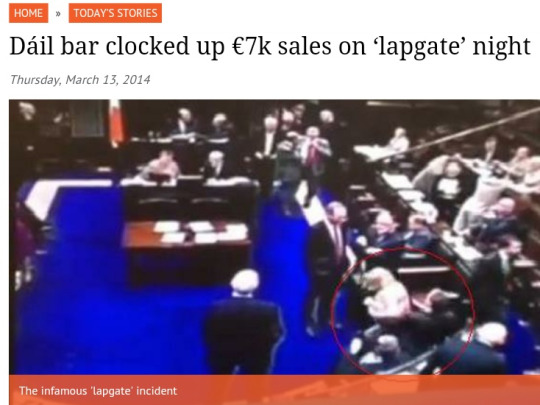Well, it’s all over. The dust has settled, the votes have been counted, and the country has voted yes in an overwhelming fashion that I did not dare let myself hope was possible. To say that I am relieved is an understatement. By the end, I had completely switched off the TV debates for my own self care. The daily demonization was just too much.
Of course, there was one fly in the ointment-Roscommon South Leitrim, the only constitutions in the country to vote No. Every time I see a map of Ireland in my Twitter feed with Roscommon/South Leitrim lit up in red and sticking out like a sore thumb, I cringe. The jokes and memes are already all over the internet, and I even noticed a tongue in cheek ‘petition’ to sell off Roscommon to Northern Ireland. The kind of people creating and sharing these are possibly quite progressive politically. They probably voted voted Yes, and proudly displayed a Yes Equality logo on their social media profiles for the last few months.
Call me a humourless wagon, and yeah, it’s quite possible that I am, but I honestly am struggling to find this situation funny. I am a bisexual woman living in the constituency, and the fact that the majority of my neighbours either voted against or were simply not bothered to vote in favour of marriage equality hurts me. I am sure that there are dozens of other LGBTQIA+ people in the region feeling similarly let down. There are young queer teens waking up today in Roscommon and Leitrim, and though they will be no doubt buoyed by the Yes victory, the knowledge that their county men & women voted against the referendum will possibly make them feel even more isolated in a rural area that does not enjoy the same strong support networks that their more urban counterparts do. I feel for those kids today. I and others should not feel that we have to leave our home to feel loved and included. In the light of all this, the jeering and Roscommon-bashing feels neither funny nor progressive to me.
Kudos must go to Yes Equality Roscommon and YE Leitrim, tiny grassroots groups with little to zero funding, consisting of volunteers giving up their own time to get the message out. Would that I could say the same of the local political parties, who seemed to decide that they’d rather sit this one out, despite the fact that the national parties came out in favour. I e-mailed my local politicians in frustration, with only one or two even deigning to acknowledge me. By way of contrast, the No campaign had a very robust presence, with leaflets being handed out at masses and placed on windscreens in church car parks in every parish. No posters outnumbered yes by 10 to 1 easily, with a fresh crop going up on the eve of the referendum. It was an uphill struggle, despite what the likes of self-pitying Iona members will say today.
2/3 of the electorate voting Yes is a great result, but we need to do more. Hundreds of thousands of people rejected the proposal, and many of those will undoubtedly be parents, grandparents, uncles or aunts of queer children. Donegal, Cavan and other north-west and border counties shaded it by a mere few thousand votes, with some remote pockets of overwhelming Nos. Now that marriage equality has been achieved, we need to keep up the momentum in the push for liberation. Gender recognition, blood donation bans, section 37.1 of the Employment Act that entitles schools to fire LGBT teachers with impunity must be on the political agenda. The movement needs to centre trans people, people of colour, people with disabilities and sex workers. Many LGBT people will be suffering under the austerity measures implemented by the Fine Gael/Labour government who are reassuring us how pro-equality they are today. We also, of course need to repeal the 8th amendment, as our draconian abortion laws disproportionately affect poor and migrant people, many of whom are queer and trans.
This victory is a wonderful, cathartic event and to paraphrase Panti, Ireland didn’t change yesterday, it confirmed a change that has already begun to take place. Yesterday was far from an end, but merely a start.
Paddy McKenna, the RTE journalist and Leitrim has written a decent post on this on his blog here. I don’t necessarily agree with all of it, but I think it’s worth a read.


 So, Ivan Connaughton (FF), Des Guckian (Ind) and Gerry O’Boyle (Ind) are anti-choice.
So, Ivan Connaughton (FF), Des Guckian (Ind) and Gerry O’Boyle (Ind) are anti-choice.